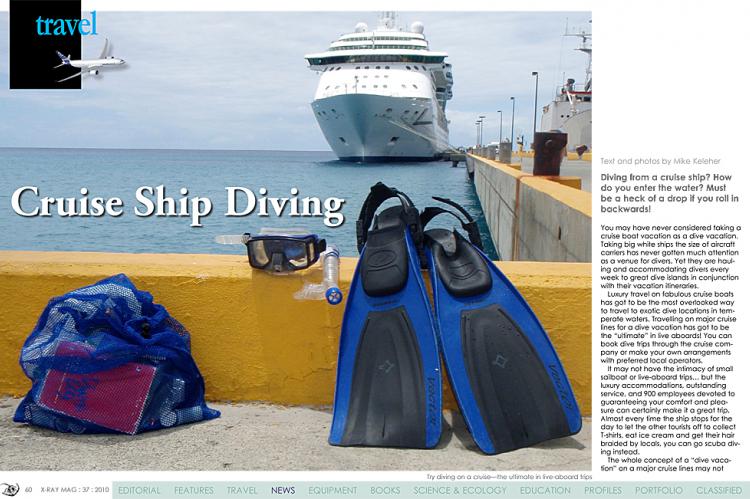Dive travellers still caught in a Covid-limbo
With the passing of another month, COVID-19 rages on. After a respite over the summer, cases in many countries have spiked dramatically, creating a second wave (or a third, depending on your sources). Travel restrictions and border closings evolve continuously. Nonessential travel is banned between some destinations, while others require a two-week quarantine period at the start or end of a trip. Once again, travel has been put on hold. Or has it?
Despite the media doom and gloom, some destinations have opened up, especially regarding dive travel. These include the Bahamas, most Caribbean countries, Cocos, French Polynesia, Galapagos, Malpelo, Maldives, Red Sea, Sea of Cortez and Socorro. Others, like Indonesia, have opened to domestic tourism but remain closed to international visitors. However, restrictions remain stringent; travellers must be tested prior to their departure and upon arrival. In some cases, you will be quarantined until test results are available. The good news? If everything checks out, you can dive!
Regardless of the extremely low chances of catching COVID-19 on a flight, many remain reluctant to travel. To entice visitors, many operators have implemented flexible booking policies featuring no change or cancellation fees. In addition, stringent safety protocols are followed, from sanitizing dive equipment to social distancing practices in restaurants. Safety practices are emphasized in detail on many operators’ websites.
No sail
On the flip side, the US Centres for Disease Control (CDC) has updated its warning to travellers to defer all cruise travel worldwide. This came days before the CDC revealed whether its “no-sail” order banning cruise ships from operating in North America would be lifted or extended. The warning itself is not new, but rather an update to an existing warning issued in the spring.
Meanwhile, cruise lines are offering excursions directly through their companies for scuba and many other water-related activities such as snorkelling, SNUBA and underwater scooters with big bubble helmets called Breathing Observation Bubbles (BOBs).
Cabin fever
If the current situation drags on for months, divers suffering from cabin fever may just decide to go for it. In some cases, the destination may actually be safer than their home country. Regardless, dive operators are suffering, and any visitor will likely get the royal treatment. If the inconveniences are not a deterrent, those wishing to travel will be able to dive locations usually overrun by tourists. To many, that will be enticement enough. Despite current appearances, this situation will end. It is only a matter of when.



